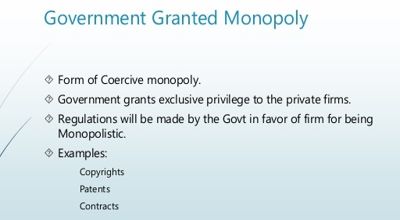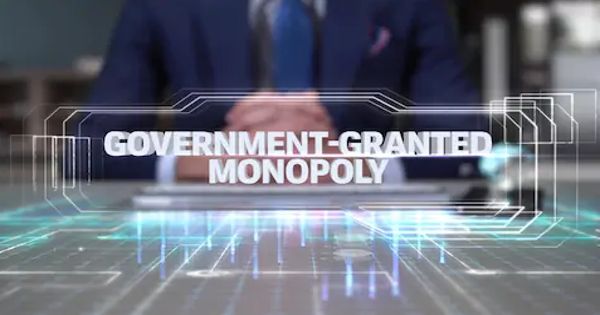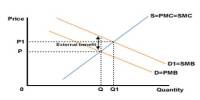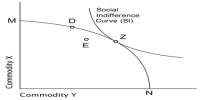In a government-granted monopoly, business decisions are made by a private firm. In a government monopoly, decisions are made by a government agency. In economics, a government-granted monopoly and the monopoly to be served under government is a form of coercive monopoly by which a government grants exclusive privilege to a private individual or firm to be the sole provider of a good or service; potential competitors are excluded from the market by law, regulation, or other mechanisms of government enforcement. In a government monopoly, an agency under the direct authority of the government itself holds the monopoly.
As a form of coercive monopoly, a government-granted monopoly is contrasted with a coercive monopoly or an efficiency monopoly, where there is no competition but it is not forcibly excluded. A form of monopoly in which a government agency is the sole provider of a particular good or service and competition is prohibited by law.
A form of monopoly in which a government grants exclusive rights to a private individual or firm to be the sole provider of a good or service. Amongst forms of coercive monopoly, it is distinguished from government monopoly or state monopoly (in which government agencies hold the legally enforced monopoly rather than private individuals or firms) and from government-sponsored cartels (in which the government forces several independent producers to partially coordinate their decisions through a centralized organization). It was created through laws that ban potential competitors from offering certain types of services, such as first-class and standard mail delivery.

In a government-granted monopoly, the government gives a private individual or a firm the right to be the sole provider of a good or service. Advocates for government-granted monopolies often claim that they ensure a degree of public control over essential industries, without having those industries actually run by the state. Potential competitors are excluded from the market by law, regulation, or other mechanisms of government enforcement. Opponents often criticize them as political favors to corporations.
Government-granted monopolies may be opposed by those who would prefer free markets as well as by those who would prefer to replace private corporations with public ownership. A patent is a set of exclusive rights granted by a state or national government to an inventor or his/her assignee for a limited period of time in exchange for public disclosure of an invention.
















